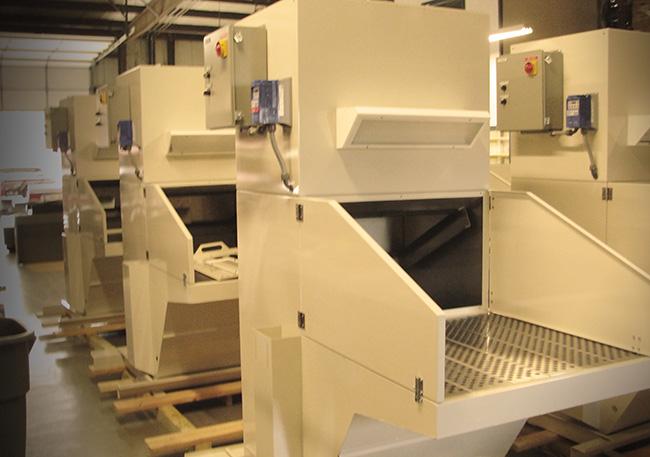
Metals, such as aluminum and titanium can prove extremely dangerous as the dust contaminants they produce through grinding, polishing, and buffing, are quite flammable. Special units, such as the AER Combustor Wet Dust Collector are able to mitigate and control those contaminants and keep your workforce safe from danger.
Collectors and filtration systems are OSHA and NFPA compliant, able to draw contaminants away from the operator’s breathing zone, and reducing flammability concerns with certain metals.
Filtration tables are efficient and cost-effective, while also being user-friendly and easy to maintain.
Minimize the danger that flammable metals can have to your machines and operators.
Flammable Metal Health Dangers
Any hazardous particles that are released when grinding, buffing, or polishing metals will become a potential health risk for your workspace. The short-term effects of exposure to metal dust can include:
- Dizziness
- Nausea
- Eye, Nose, and Throat Irritation
Long-term effects are much more serious and can include:
- Lung, Larynx or throat Irritation
- Cancer
- Ulcers
- Nervous System Damage
Prevent Disasters
Special units, such as the Combustor, can help you to avoid dangers, such as dust explosions. The metal industry is no exception, considering the harmful flammable metals that may produce contaminants. Personal health may also be affected by simply breathing in the dust produced by industrial processes.
Metal Working
Dry buffing, grinding, and polishing certain metals can contribute to more contaminants being produced in your workplace. Flammable metals are especially hazardous and should be controlled responsibly.
Dry Contaminants
Wet and dry contaminants can be controlled through the use of various forms of filtration. Flammable metals may be mitigated through controlling water level and blowing and collecting contaminants away from the operator’s working zone.
Control & Safety
Filtration units are easy to maintain and control, and some are even handicap accessible. Most machines are have the ability to self-clean either automatically or manually at the discretion of the operators. Both OSHA and NFPA compliant, the tables provide ample safety for the operator, and those working around them.
